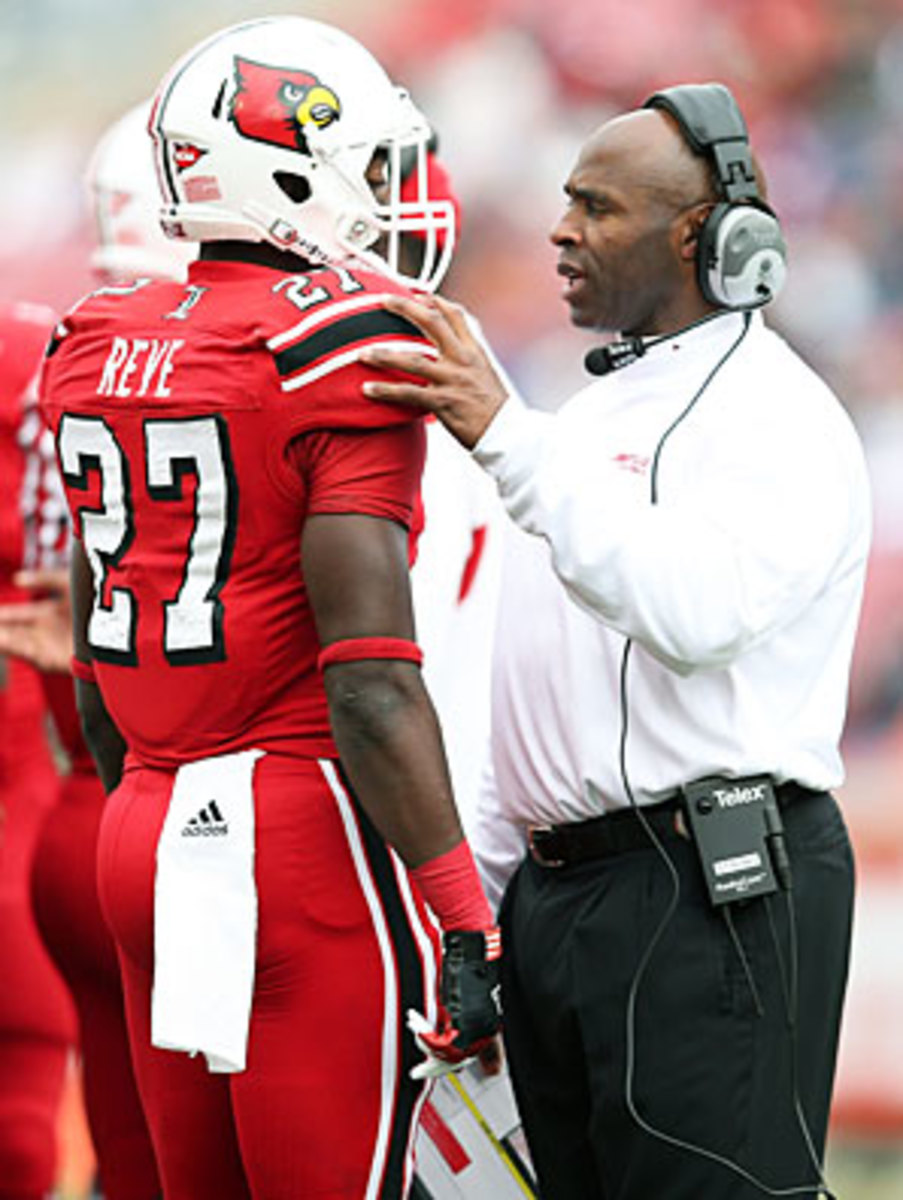ACC adds Louisville in move driven by football, not by market value
Unlike Maryland and Rutgers to the Big Ten, Texas A&M to the SEC and most of the moves before those, the ACC is not adding Louisville for its ability to deliver television sets. On the contrary, Louisville is the nation's 48th-largest television market. The two other prime contenders to join the league, Cincinnati and Connecticut (Hartford-New Haven), have larger markets.
Nor was this about demographics, geographic footprints or recruiting bases. Florida State is not clamoring for a gambit to hook potential Kentucky recruits.
It wasn't about basketball, either, though the already mighty hoops conference certainly grows stronger by adding a reigning Final Four team. Three-time national champ Connecticut would have had much the same effect.
And it certainly was not about academics. The traditionally haughty ACC basically sold its academic soul in choosing Louisville, which, at 160th in the last U.S. News & World Report rankings, checks in well below the league's currently lowest-rated school, NC State (106th). One might chastise the conference for that, but it would first require duping one's self into believing that any of this ever had anything to do with academics.
Louisville was the ACC's choice primarily for one reason: football. In particular, the move addressed the ACC's need to get better at it.
The ACC originally thought it was turning into a powerhouse football conference back in 2003, when it added Miami, Virginia Tech and Boston College. That result never materialized, partially due to Florida State and Miami's extended struggles, but also because Virginia, NC State, Maryland, et al., simply aren't very good. If anything, the ACC is further behind the SEC, Big 12 and Pac-12 than it was nine years ago, and it showed in this year's national title race.
Despite entering last weekend with 10-1 records, neither Florida State nor Clemson could gain any traction in the BCS standings due primarily to their weak conference competition. Not only did the voters hold them in lower regard than most other contenders with similar records, but the computers -- which largely measure strength of schedule -- were particularly brutal. Prior to last week's loss to Florida, the Seminoles, then 10-1, were No. 5 in the Coaches' Poll, No. 6 in the Harris Poll and No. 17 in the computers, leaving them stuck behind three two-loss teams in the overall standings.
With the four-team playoff on its way in 2014, the ACC needs to give its upper-echelon teams the best possible shot of being selected, or possibly risk losing them to more respected conferences (should the Big 12 and SEC choose to expand again). Louisville, which reached a BCS bowl and finished in the top 12 twice under Bobby Petrino, and which returned to the top 10 earlier this season under Charlie Strong, stands to help much more in that regard than recent additions Syracuse and Pittsburgh. In fact, if the program manages to fend off other suitors and hang onto Strong (and Wednesday's news certainly helps), it could conceivably contend for ACC titles from day one.
For Louisville and its tireless athletic director, Tom Jurich, Wednesday's move is the culmination of 15 years spent revitalizing the school's athletics. The football program was one step below irrelevance when Jurich arrived in 1997. First in Conference USA, then in the Big East, it began its rise under Jurich hires John L. Smith and Petrino (and then dug itself out of the ill-fated Steve Kragthorpe era) while investing nearly $150 million in facility constructions and upgrades (not to mention opening a new $238 million basketball arena in 2010). Today, its athletic facilities are on par with nearly any in the country, and its financial support is comparable to most Top 25 programs. Strong makes $2.3 million a year and will almost certainly garner a huge raise in the coming months, provided an SEC school doesn't poach him.
And yet, for all of its resources, Louisville was stuck in a crumbling conference, faced with a future of games against Temple and UConn. It had to be particularly galling when Rutgers, with its no-better football program and cash-bleeding athletic department, received a lifeline from the Big Ten. Jurich had made no secret over the past year of his intent to flee if possible, and Maryland's departure from the ACC provided that opportunity.
Now, Louisville has a home where it's guaranteed no worse than an Orange Bowl berth if it wins its conference (in the Big East, it would compete with the Mountain West, among other leagues, for a premium bowl berth) and, at least compared to the current Big East, a much better shot at the playoff. And the ACC, to its credit, did not just brush off Maryland's departure; it upgraded its football product.
Imagine that. A conference actually improved its football brand through expansion. What a unique concept.





